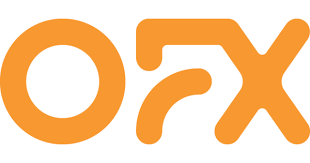UK to Canada Guide
Contents
Summary
Canada has no foreign exchange controls, making overseas money transfers to Canada or sending money from Canada simple. Profits from registered Canadian businesses may be transferred to foreign investors once national tax obligations are met. Only licensed money services businesses (MSBs) are authorised by the Canadian central bank to execute financial transfers.
Our Top 7 Digital Money Transfer Providers
Latest prices for transferring money from UK to Canada
Canada’s money transfer regulations
When transferring money from Canada or sending money to Canada, we strongly recommend using brokers who are registered with the Canadian anti-money laundering authority, the Financial Transactions and Reports Analysis Centre (FinTRAC). Created in 2000 as an independent body under the Ministry of Finance, FinTRAC regulates and monitors all MSBs and financial transactions in Canada. Registered service providers are required to report to FinTRAC high-value or suspicious transactions – these include cash receipts or international money transfers of C$10,000 or more. Anything over the C$10,000 threshold must be declared. As of January 2015, these reports also have to be sent to the Canada Revenue Agency.
With the exclusion of agricultural land, non-residents are largely subject to the same fees and restrictions for property ownership as Canadians, though these vary by province. The industry does not collect official statistics on foreign real estate ownership, but property acquisitions are relatively common.
Canada’s regulatory authority
The country’s central bank, the Bank of Canada, regulates the financial markets in conjunction with an independent agency, the Office of the Superintendent of Financial Institutions (OSFI). The OSFI specifically regulates financial institutions, including banks, insurance corporations and private pension funds.
The Bank of Canada sets monetary policy and monitors the value of the free-floating CAD. Neither the government nor the central bank set a particular target for the Canadian dollar, but the Bank of Canada reserves the right to intervene in the foreign exchange market to prevent rapid currency movements. Such measures are governed by the country intervention policy, which is jointly set by the government and central bank. The Bank of Canada last intervened in the foreign exchange market in 1998, after which the government has adopted a policy to act only in cases of emergency.
The Canadian Foreign Exchange Committee (CFEC), though not a regulatory authority, provides a platform to discuss foreign exchange issues and review market practices. It is chaired by the central bank’s financial market chief and includes representatives of major financial institutions active in the foreign exchange market, including the Big Five Canadian banks and international banks and exchange platforms.
Top 7 Money Transfer Providers continued...
Trade volume
Canada’s diverse and hi-tech industries, combined with a favourable policy toward skilled migration in key sectors, have led to high foreign exchange volumes. Some 500 MSBs were registered with FinTRAC in 2013, including 184 new registrations that year.
The US dollar is the most frequently exchanged currency in Canada, given the strong flows of bilateral trade, tourism and migration between the two neighbours. The USD was involved in 46.2% of transactions in April 2014, followed by the CAD (32.8%) and the Euro (5.5%).
Taxation
Individuals and corporations resident in Canada are subject to tax on their global income and capital gains. Non-residents are subject to Canadian corporate and personal income tax if they conduct business in Canada, are locally employed, or sell property located in the country. Reduced federal tax rates are in place to attract activity to under-served provinces or key economic sectors.
Corporations and individuals are subject to income tax at the provincial level, but most provinces have eased the historic capital tax on corporations. Today, Saskatchewan, Manitoba, Quebec, Newfoundland and Labrador, Prince Edward Island and New Brunswick apply limited capital taxes on certain financial institutions.
Non-residents are also subject to a 25% withholding tax on dividends, certain interest payments, rents and royalties received in Canada, which are categorised as “gross rents”. However, these taxes apply strictly to income generated from Canadian activities and investments. Once the income has been received, the person who earned the money has until the 15th of the following month to pay the tax required. If this tax is not paid on time, then interest and other charges will be applied to the tax owed. Canada has signed tax treaties with over 90 countries to avoid redundancy and, in some cases, eliminate or reduce withholding tax.
There are also high levels of property tax in effect in Canada – not just from the sale and purchase of property but also through a yearly tax that is applied based on the total value of the property.
Currency
Thecurrency of Canada is the Canadian dollar (CAD, symbol C$). Bank notes areavailable in C$5, C$10, C$20, C$50 and C$100 denominations. The C$1 and C$2bills have been replaced with coins (the loonie and toonie, respectively). OneCanadian dollar consists of 100 cents, available in 1, 5, 10 and 25 cent coins.
Canada to Specific Country Guides
Review our Canada corridor guides below covering property, expats, moving abroad and business.
Money Transfer Canada to Australia
Money Transfer Canada to France
Money Transfer Canada to India
Money Transfer Canada to New Zealand
Money Transfer Canada to Thailand
Money Transfer Canada to UK
Money Transfer Canada to USA
Frequently Asked Questions
Are the money transfer companies shown above safe to use?
All of the money transfer companies and services listed above are fully safe to use. Each of the above are authorised and regulated by the relevant financial authorities in each jurisdiction and are licensed to provide transfer services.
How long does an international money transfer take?
The length of time it takes to fully complete a money transfer will depend entirely on the service used and what currency you want to transfer. Transfers sent using banks — such as bank to bank transfers — will typically be quite quick, often taking between 1–2 working days. For more precise estimates, you should always check the estimated time with the relevant provider. Debit card and credit card payments might also take less time.
How do I use FXcompared?
To use FXCompared to make a money transfer from UK to USA, the first step is to use the above table to compare the rates from the various providers. To find the best provider to transfer GBP to USD, consider factors including price, speed and its overall rating. Once you have made a decision, simply click the green button to get taken through to the provider’s website. From there, you will be able to sign-up and register for an account. Once the verification process is complete, you can initiate the transfer.
What payments methods can I use to send money overseas?
The majority of transfers overseas will be made using a bank to bank transfer, although there are a number of other methods available. This includes cash, debit and credit card, as well as digital wallets. The methods available to you will depend on what provider you chose to make the transfer with.
What if the price shown above isn’t exactly what I am offered when I try to transfer money?
Although the prices shown above are generally accurate with market rates in real time, there may be some slight differences when you finalise your order. Exchange rates will fluctuate over the course of the trading day based on real-time market data. As such, when you are looking to transfer money to UK from US, for example, there may sometimes be a delay in how they are reported. Price fluctuations may also be caused by the individual site in question, depending on what services they have available.
Latest Money Transfer News Articles for Canada










